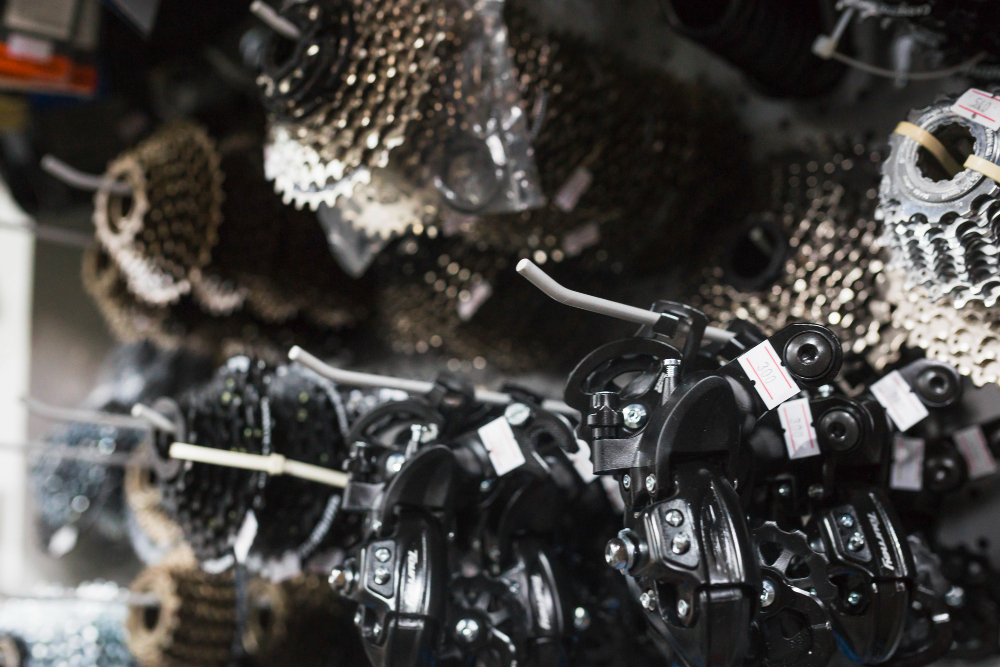Titanium is known for its strength, lightweight properties, and exceptional corrosion resistance, making it a go-to material for a wide range of industries. However, with multiple grades of titanium available, choosing the right one can be challenging. Each grade has unique characteristics tailored to specific applications, and understanding these differences is crucial for making the right decision. We will explore the various grades of titanium, their properties, and how to select the right one for your specific needs. Special attention will be given to Titanium Grade 9 Sheets, a material frequently used in aerospace and industrial applications, to illustrate the importance of choosing the right grade for your project.
Understanding Titanium Grades
Titanium is classified into multiple grades, from commercially pure titanium to alloys with added elements like aluminum and vanadium. These grades are categorized into two main types: commercially pure (CP) titanium and titanium alloys.
- Commercially Pure Titanium:
CP titanium grades range from Grade 1 to Grade 4, with Grade 1 being the most ductile and Grade 4 the strongest. These grades are highly resistant to corrosion, making them suitable for chemical processing, desalination, and marine applications.
- Titanium Alloys:
Titanium alloys are stronger than CP titanium and are commonly used in high-performance industries like aerospace, automotive, and sports equipment. These grades include Grade 5 (Ti 6Al-4V), which is the most widely used titanium alloy, and Grade 9 (Ti 3Al-2.5V), which offers excellent weldability and strength.
Choosing the Right Titanium Grade
When choosing a titanium grade, you must consider factors like strength, corrosion resistance, formability, and weldability, depending on the requirements of your project.
Key Factors to Consider
- Strength:
If you need a material that can withstand high stresses, titanium alloys like Grade 5 and Grade 9 are excellent choices. For projects requiring high strength but reduced weight, these alloys offer an ideal balance.
- Corrosion Resistance:
CP titanium grades (Grade 1 to Grade 4) are highly resistant to corrosion, making them suitable for environments exposed to seawater or harsh chemicals. If your project involves marine or chemical processing equipment, a commercially pure titanium grade might be your best bet.
- Weldability and Formability:
Titanium Grade 9 is often chosen for applications where weldability and formability are important, such as in aerospace tubing. It can be easily shaped and welded, making it a versatile choice for complex projects.
- Temperature Resistance:
Some titanium grades are better suited for high-temperature applications. For example, Grade 5 titanium is commonly used in jet engines and other high-heat environments.
Why Choose Titanium Grade 9?
Titanium Grade 9, also known as Ti 3Al-2.5V, is an alloy with 3% aluminum and 2.5% vanadium. It offers a middle ground between the commercially pure grades and the higher-strength Grade 5. With its excellent weldability, corrosion resistance, and moderate strength, Titanium Grade 9 is a popular choice for industries such as aerospace, sports, and automotive.
One of the standout features of Titanium Grade 9 Sheets is their formability, making them ideal for complex shapes and structures that require precision. Additionally, Grade 9 sheets have better strength than CP titanium while maintaining good weldability and ductility, providing a perfect balance for demanding applications.
When choosing a material for your project, it’s important to consider both your immediate needs and future demands. For instance, if you’re looking for a material that can withstand moderate stress and provide easy weldability, Titanium Grade 9 sheets are an excellent choice. If you are sourcing titanium for aerospace, automotive, or industrial applications, finding a reliable Titanium Grade 9 Sheets Exporter will ensure you get high-quality materials that meet your exact specifications.
Applications of Titanium Grade 9
Aerospace Industry:
Titanium Grade 9 is widely used in the aerospace industry for hydraulic tubing, fuel lines, and other components that require moderate strength and corrosion resistance. Its lightweight nature helps improve fuel efficiency, while its durability ensures long-term performance.
Automotive Industry:
For high-performance vehicles, Titanium Grade 9 sheets are used in exhaust systems, structural components, and suspension systems. The alloy’s ability to reduce weight without compromising strength makes it a preferred material for racing and luxury cars.
Sports Equipment:
The combination of strength and lightness makes Titanium Grade 9 a popular choice for bicycle frames, golf clubs, and other sports equipment. Its excellent fatigue resistance ensures that the material can withstand repeated stress over time.
Titanium Grade Comparison
To better understand how Titanium Grade 9 stacks up against other grades, here’s a quick comparison:
- Grade 1: Highest ductility, excellent for corrosion resistance, but low strength.
- Grade 2: Widely used for its balance of strength and formability, ideal for chemical processing.
- Grade 5: The strongest titanium alloy, often used in aerospace and high-stress applications.
- Grade 9: Moderate strength, excellent weldability, and corrosion resistance, commonly used in aerospace and automotive industries.
Conclusion
Titanium is an incredibly versatile material, but choosing the right grade for your project is essential to maximize performance. Titanium Grade 9 offers an excellent balance of strength, corrosion resistance, and formability, making it a top choice for industries like aerospace, automotive, and sports equipment. You can make an informed choice and guarantee the success of your project by being aware of the distinctive qualities of each grade.



